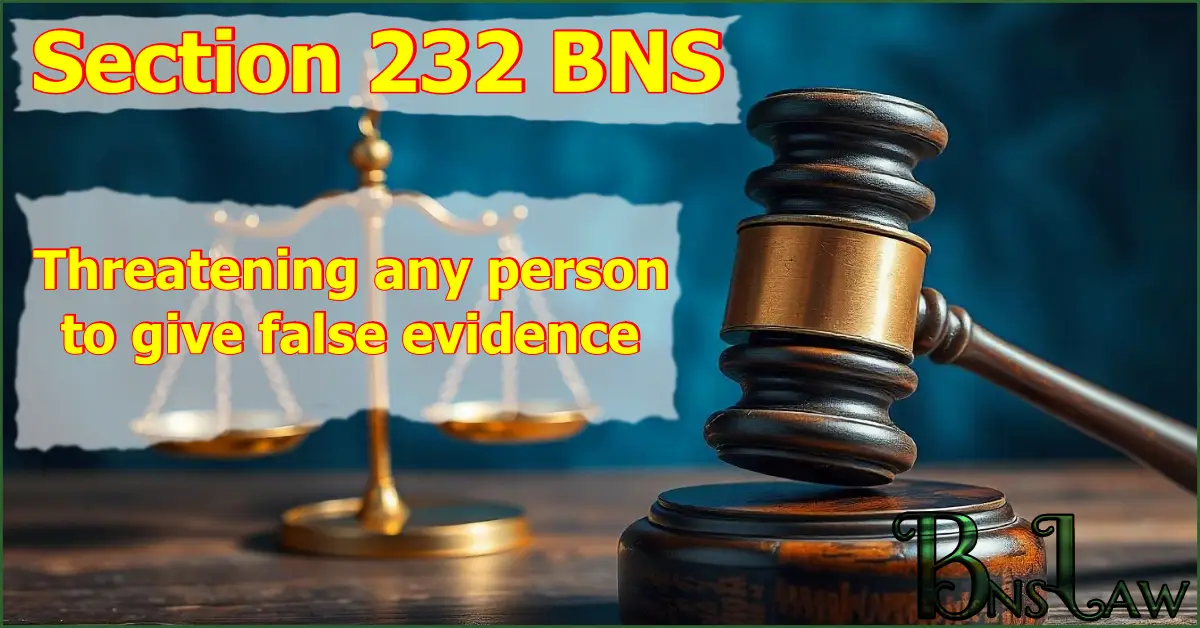Section 232 BNS | BNS 232
232(1) BNS
Whoever threatens another with any injury to his person, reputation or property or to the person or reputation of any one in whom that person is interested, with intent to cause that person to give false evidence shall be punished with imprisonment of either description for a term which may extend to seven years, or with fine, or with both.
232(2) BNS
If innocent person is convicted and sentenced in consequence of false evidence referred to in sub-section (1), with death or imprisonment for more than seven years, the person who threatens shall be punished with the same punishment and sentence in the same manner and to the same extent such innocent person is punished and sentenced.
READ OTHER SECTIONS OF CHAPTER XIV — OF FALSE EVIDENCE AND OFFENCES AGAINST PUBLIC JUSTICE
FAQs of BNS Section 232
-
232 BNS punishment and fine
Punishment and fine under Section 100 of the BNS—
232(1): Imprisonment for 7 years, or fine, or both.
232(2): The same as for the offence. -
232 BNS cognizable or not
The offence under Section 232(1) and 232(2) of the BNS is cognizable.
-
232 BNS bailable or not
The offence under Section 232(1) and 232(2) of the BNS is non-bailable.
-
232 BNS trial court
Offence specified in Section 232(1) and 232(2) of the BNS is triable by the Court by which offence of giving false evidence is triable.
Important Points
- Cognizable Offences: These are offences where a police officer can arrest a person without a warrant.
- Non-Cognizable Offences: These are offences where a police officer cannot arrest a person without a warrant.
- Bailable Offences: These are offences where the accused can get bail from the police station itself. All bailable offences are listed in the First Schedule of the Bharatiya Nagarik Suraksha Sanhita (BNSS).
- Non-Bailable Offences: Offences in which bail is not granted directly from the police station but after hearing the case in the court, the judge decides when bail will be granted. All non-bailable offences are listed in the first schedule of the Bharatiya Nagarik Suraksha Sanhita (BNSS).
- In the above FAQ, “trial court” means the court that has jurisdiction to try the offence.
- In the above FAQ, the expression “Magistrate of the first class” and “Any Magistrate” does not include Executive Magistrates.
Read other Sections of the BNS
Reference Link: New Criminal Laws (BNS), Ministry of Home Affairs







